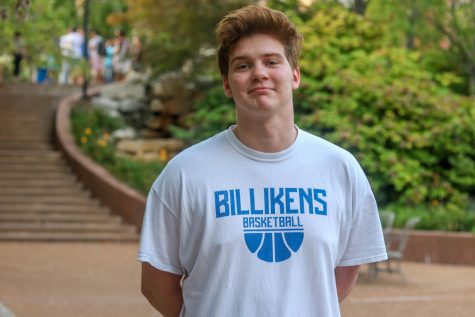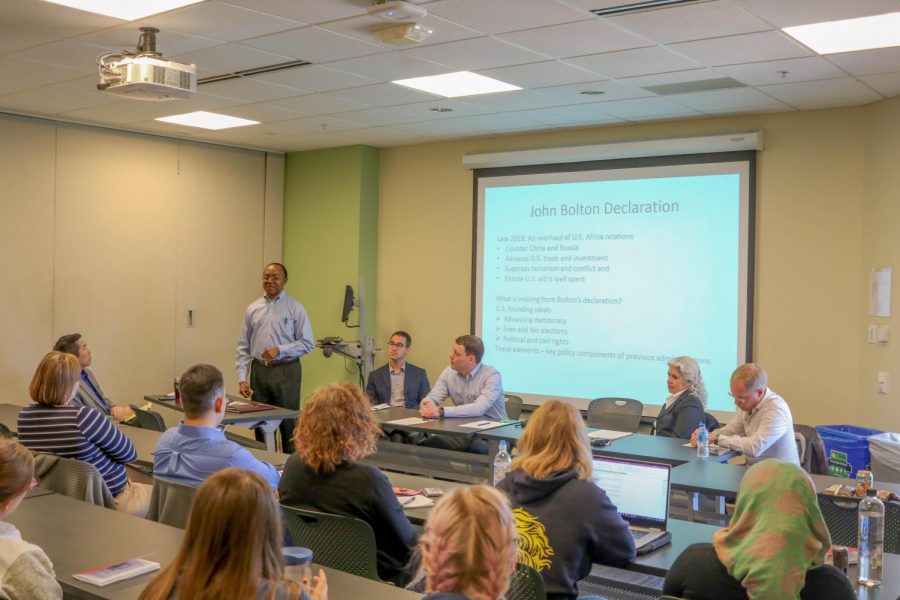SLU students globalize their learning at US foreign policy talk
Students had the opportunity to listen and ask questions at the ‘U.S. Foreign Policy Around the World’ talk held in the Busch Student Center Tuesday as part of Atlas Week. The event, with a panel of five professors from the political science department at SLU, aimed at highlighting key aspects of American foreign policy in various regions and on topics of specialization for the professors.
The panel was moderated by Professor Nori Katagiri, Ph.D., and included segments on an array of issues presented by Professors Matthew Nanes, Emmanuel Uwalaka, Ellen Carnaghan, J.D. Bowen and Eric Royer.
Katagiri introduced the talk by stating that, “given the high level of demand for understanding the complexity of foreign events,” it would be appropriate to discuss “foreign policy and our relations with various regions of the world.”
The different segments directly addressed foreign policy questions surrounding the Middle East, Africa, Latin America and Russia, as well as democracy promotion worldwide. Students were presented with ways to think more critically about strategies and agendas employed in policy actions and, as Royer put it, the panel addressed the need for “more nuanced discussions and critical examinations of disparate topics.”
“The unfortunate reality about American foreign policy is that it is messy, convoluted, and full of contradictions as well as double-standards,” observed Royer.
One way in which Royer wanted to inform and enhance the understanding of those attending was by posing important questions relating to American policy abroad, such as, “Does it have to be this way?” and “If there is a disconnect between theory and practice, what can we do?”
“These are truly challenging questions I hope the SLU community can tackle together and Atlas Week continues to provide an invaluable forum for these discussions to take place,” Royer said.
He also reflected on the importance of Atlas Week stating, “the topics, discussions, and content truly reflect how diverse and interconnected our world is.”
In the end, Royer hopes “that these discussions allow students to open their eyes to the most glaring and pressing issues confronting the world today and, in particular, to challenge preexisting belief systems.”
Your donation will support the student journalists of Saint Louis University.





